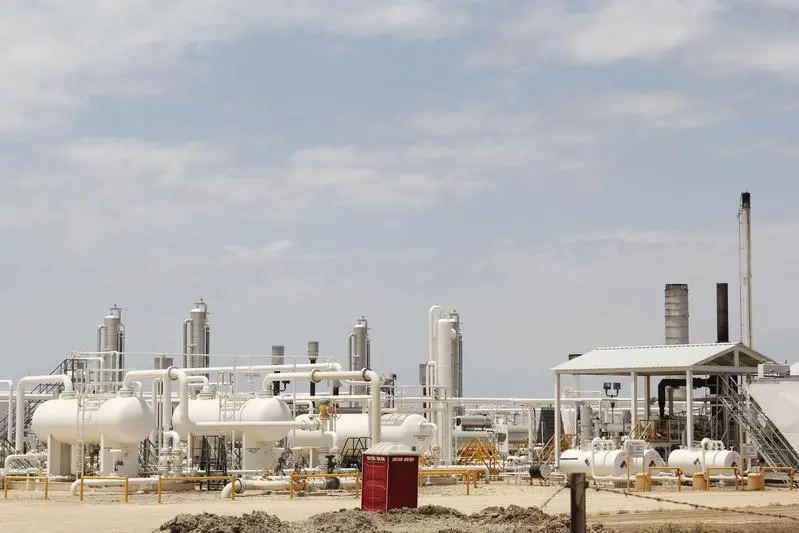PHOTO
RIYADH — The industry for Heating, Ventilation, Air Conditioning and Refrigeration (HVAC R) solutions in Saudi Arabia is expected to reach a value of up to $6.36 billion by 2022. The total HVACR market in Saudi Arabia represents close to 2% of the global HVAC R market.
On the sideline of HVAC R Expo Saudi 2019 that wrapped up recently in Riyadh, industry experts shared their insights into the local market, the industry trends in Saudi, and the role of Saudi government in boosting the sector.
On Saudi government efforts to help push forward the industry, Arif Hussain, National Product Manager at Al Salem Johnson Controls said that in view of 2030 initiative, Saudi government enacted SASO regulations 2663 & 2874 which improve the efficiency level of all air conditioning equipment. They have also introduced District cooling framework for new developments exceeding 15,000 tons. More recently, the Saudi building efficiency code was revised & implemented. In addition, Saudi government is also encouraging efficiency improvements in existing buildings through registered ESCO companies.
AbdulRouf Pandith, Senior Mechanical Engineer at KEO International Consultants, focused on the implementation of a district cooling scheme to one of the most iconic projects “King Abdul Aziz Road” Makkah. It also covers the basis of design for the chilled water reticulation system, which is being considered one of the main components - the overall effectiveness of DC system depends largely on reliability and maintainability of this component.
“With the project being located in a part of the world where ambient temperatures during the daytime are extremely high, Makkah has a very high cooling demand. By choosing District Cooling instead of traditional cooling solutions, the KAAR project is displaying an increased focus on sustainability and environmentally friendly solutions.”
The continuous demand for water, power and cooling are the pure result of Saudi Arabia’s rapidly expanding industrial base and population.
This in turn has increased the requirement for the availability of air conditioning systems that as it stands are consuming almost 70% of the entire power that is generated or produced in the country.
“Riyadh, Jeddah, Dammam and Makkah are the major cities in Saudi that have witnessed the highest growth of cooling systems across the country, due to the increase of demand for more energy efficient systems which help in saving electricity and input costs. Since District cooling consumes 50% lesser power compared to conventional cooling system. District cooling is considered to be feasible and necessary in Saudi Arabia and helps to reduce the burden on the national grid.”
Safi Marroun, Business Development Manager, YMCO, explained how the HVAC industry is benefiting from bio-mimicry techniques. He said: “Energy consumption due to HVAC systems is always a concern when speaking of sustainability and energy intake reduction. Thus, when a biomimetic design brings natural non-fuel strategies into our design, it is benefiting us to enhance our relationship with our home, Earth, without having to be dependent on HVAC fuel/electricity systems as much. There has been few designs already in the market from a building passive cooling system to zero-moisture room for medical purposes.”
Mohammed Sami Chatila, Technical Support & Training Manager at Shaker Group, said the vision with actual steps and foundations the Kingdom is implementing to diversify its economy are presenting new market segments for the HVACR market. “Therefore, we’re excitingly and eagerly looking out for the expansion/creation of tourist destinations along the introducing of more entertainment businesses. Along with the previous mentioned two segments, hospitality businesses are also naturally a complementary segment. With these new visions of diversified economy, we’re again looking forward for more potential HVACR projects coming out of these new market segments,” he noted.
Faizal Babu Pallathody, Managing Director at VTS Clima, said the Saudi HVAC market is growing at a fast pace on account of growing construction activities in the country’s residential as well as industrial sectors. Extreme climatic conditions in Saudi Arabia, changing lifestyles and rising number of government initiatives towards restructuring the country’s oil-dependent economy are expected to boost demand for HVAC systems in the country during the forecast period. More than 5,200 construction projects are currently rolling out in the GCC’s largest and most populous country Saudi Arabia.
Osama Alessa CEO, Alessa Industries Co., said: “Due to recent market focus regarding high EER AC, people are missing the importance of product durability, brand importance and ease of service which are very important. This has allowed small brands offering only price advantage to grow, but this trend will change in the coming 2 years and I am foreseeing that the focus will move back to the brand, technology and the distributor’s service and reputation.”
Hassan G. Shaker, CEO Hussein & Alhassan G. Shaker Bros. for Modern Trading Co Ltd, said the VRF is becoming more and more popular in the sector as a large increase on electricity fees pushes the HVAC market to more efficient solutions. This is mainly because VRF has higher energy efficiency, especially under partial load, compared to all the other air-cooled type ACs, like split, windows, concealed and so on.
The 2019 edition of HVAC R Expo Saudi welcomed more than 7,000 visitors to the Riyadh International Convention & Exhibition Centre (RICEC) during its three days of business that ended last Jan. 30. — SG
© Copyright 2019 The Saudi Gazette. All Rights Reserved. Provided by SyndiGate Media Inc. (Syndigate.info).





















